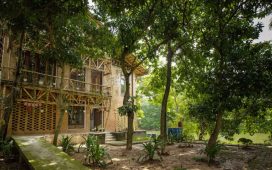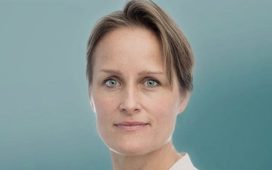In Palo Alto, Tesla is struggling. Sales are down. The stock is volatile. Elon Musk’s electric dream is hitting potholes across America and Europe.
But 12,000 kilometres away, in the chaotic, honking streets of Dhaka, a different kind of Tesla is thriving – one without a logo, without a patent, and without a billionaire founder.
Locals call them “Bangla Teslas.”
They’re not sleek sedans or luxury SUVs. They’re battery-powered rickshaws – three-wheeled, open-air, hand-built machines that now dominate the urban landscape of Bangladesh. And with an estimated 4 million on the roads, up from just 200,000 in 2016, they may just be the largest informal electric vehicle fleet in the world.
Every day, these humble e-rickshaws ferry tens of millions of passengers through narrow alleys, flooded streets, and gridlocked avenues. They’ve become so iconic that The Economist recently featured them under the headline: “Bangla Teslas” give Musk a run for his money.
For decades, the cycle rickshaw has been the soul of Bangladesh’s cities – colourfully painted, manually pedalled, and deeply woven into the cultural fabric. In 2013, UNESCO even recognized it as part of the nation’s intangible cultural heritage.
But around 2007, something changed.
Drivers began retrofitting their rickshaws with Chinese electric motors and lead-acid batteries. What started as a DIY upgrade soon exploded into a full-blown industry. Today, small workshops in Dhaka, Chattogam, and Sylhet manufacture e-rickshaws from scratch, frame, motor, battery, and all, fuelling a grassroots EV revolution.
And for drivers like Shakilur Rahman, it’s been life-changing.
“I used to pull a pedal rickshaw,” he says, wiping sweat from his brow in the Dhaka heat. “I earned barely 200 taka a day. I crawled like a tortoise.”
Now, he zips through traffic at 40 km/h, four times faster than pedal rickshaws.
“My Tesla,” he grins, patting the handlebars, “earns me Tk 1,500 a day, about $12.50. That’s enough to feed my family.”
But this electric dream has a shadow.
Many e-rickshaws are flimsy, poorly engineered, and not built for the speeds their motors allow. Brakes fail. Frames buckle. Steering wobbles.
And the cost is measured in lives.
In 2024 alone, an estimated 870 people died in accidents involving e-rickshaws, according to a local NGO. By April 2025, the death toll had already reached 378. One national newspaper called it an “apocalypse on wheels.”
“This is risky,” admits Shakilur. “But anyone can handle it.”
The data disagrees.
Safety standards? Non-existent.
Driver training? Rare.
Helmet use? Almost unheard of.
Then there’s the environmental toll.
The lead-acid batteries that power most e-rickshaws have a short lifespan. When they die, they’re often sold to unlicensed recyclers who melt them down in open-air furnaces. Toxic fumes rise into the air. Lead seeps into soil and water.
UNICEF estimates that 35 million Bangladeshi children already have dangerously high levels of lead in their blood – a public health crisis that e-rickshaws are quietly worsening.
Past governments have tried to ban e-rickshaws. Each time, drivers and riders revolted. For millions of low-income families, these vehicles are not just transport, they’re jobs, income, mobility.
But after the July 2024 uprising and the formation of a new interim government, hope flickers.
In June 2025, draft regulations were unveiled: Speed limits capped at 30 km/h; mandatory registration and licencing; safety standards for brakes, lights, and frames; and certified battery recycling programmes.
It’s a start. But Bangladesh has seen such promises before. The real challenge isn’t policy—it’s enforcement.
Will this government follow through? Or will the rules gather dust, like so many before them?
The “Bangla Tesla” isn’t a product of Silicon Valley. It’s not backed by venture capital or government subsidies.
It’s a bottom-up innovation – born from necessity, powered by ambition, and driven by millions of ordinary Bangladeshis who just want to move forward.
They’ve built their own EV revolution without permission, without patents, without applause.
And while Elon Musk dreams of Mars, in the alleyways of Dhaka, a real-world electric future is already rumbling past.
It’s fast.
It’s flawed.
It’s fragile.
But it’s theirs.
And for now, the Bangla Tesla is winning the race.





